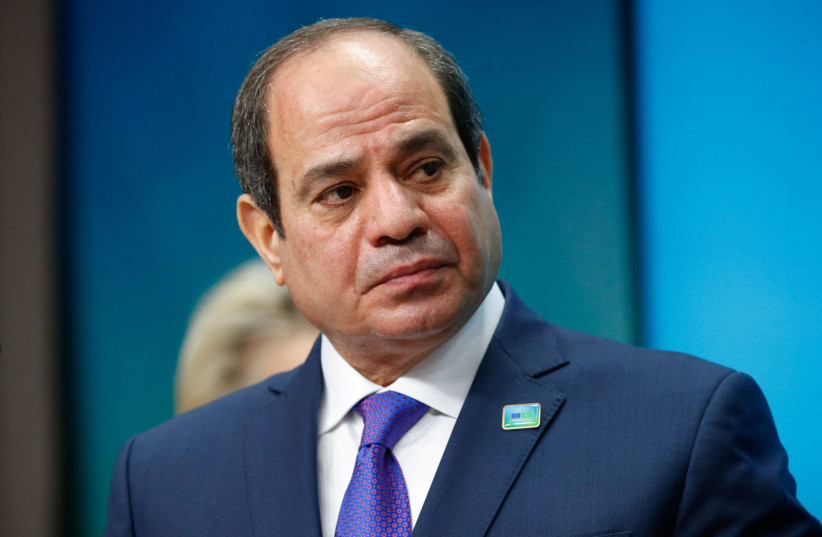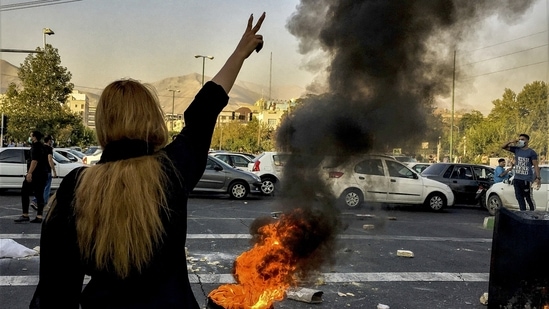In the run-up to the two-year anniversary of January 6th (J6), the United States House Select Committee on the January 6 Attack has released a new report highlighting some troubling realities regarding Donald Trump’s failed insurrection. Unfortunately, it falls short in exposing the extent of the threat of rising white supremacy in America. At a whopping 814 pages, the report is incredibly thorough in documenting what happened on J6 and Trump’s role in stoking a failed coup. The report blames “one man” for the insurrection, emphasizing a “multi-part conspiracy” on the former president’s part to overturn the lawful results of the 2020 presidential election.” Those who’ve paid close attention to news reporting in the wake of the J6 attack are unlikely to be surprised by any of the committee’s major findings. Some of the most detailed scholarship on this matter (see here and here) has already sketched out the story of J6, which is reinforced in this report, including the following:
+ Trump embraced “Big Lie” election fraud propaganda, despite being repeatedly told by his aides and administration that the claims were unfounded, to undermine public confidence in Joe Biden’s win in the 2020 election.
+ Trump brazenly and illegally sought to overturn the results of Georgia’s election outcome favoring Biden, demanding Secretary of State Brad Raffensperger produce 11,780 votes so he could “win” the state.
+ Trump endorsed and pushed a multi-point plan with aides like John Eastman and Rudy Giuliani to pressure former Vice President Mike Pence and members of Congress to refuse to certify Biden’s win, to declare his victories in swing states invalid, to announce that Trump was the winner, and when Democrats protested, to turn the certification vote back to states and alternative slates of electors that would presumably vote for Trump in red and battleground states.
+ Trump stoked insurrectionists at the U.S. Capitol, who represented a serious threat to the safety and lives of members of Congress, by encouraging mass outrage over alleged voter fraud, by persuading his supporters to travel to the Capitol and “fight like hell,” and refusing to mobilize the National Guard to stop them when they occupied the building to shut down the election certification.
One of the recommendations from the J6 committee is that Trump should be prosecuted for his actions in relation to the insurrection and failed coup. As the report states:
“The Select Committee has made criminal referrals to the Department of Justice, and both the Department of Justice and other prosecutorial authorities will now make their determinations on whether to prosecute individuals involved in the events resulting in an attack on the United States Congress on January 6, 2021.”
The J6 report is incredibly thorough in examining the events that occurred at the Capitol, and Trump’s role in manufacturing mass misinformation related to the 2020 election. The report also includes numerous references (7 total) to white supremacist and other extremist groups that participated in J6. It discusses white nationalist/white supremacist groups, militia activists, and neofascist groups, including the Proud Boys, the Oath Keepers, QAnon, Groyper Army, and the Three Percenters. The report presents their actions on J6 and beyond as a threat to the nation, particularly related to the legal charges brought against them for engaging in “seditious conspiracy” by plotting “to overthrow” the government and to “use force to prevent, hinder, or delay the execution” of the “law of the United States.”
The J6 report talks about white supremacy within the context of recognizing that racist groups participated in the insurrection. This is unsurprising considering the committee was concerned with understanding the events associated with J6. But where the report comes up short is in failing to provide an understanding of the larger socio-political context in which J6 is understood by the public at large. The committee is not alone in this failure. The question of whether white supremacist values are driving how the public understands J6 has been almost entirely ignored by U.S. journalists, intellectuals, and pollsters. A review of the Nexis Uni academic database finds that the national “agenda setting” newspaper – The New York Times – has not published a single news article in the last two years discussing J6 as related to white supremacy and the public at large. The erasure of white supremacy has happened (in part) because the topic hasn’t received much attention from pollsters. Furthermore, outside a few exceptions (see here and here and here), the question of white supremacy and mass opinion of J6 has been almost entirely ignored by researchers and scholars. Only two studies by academics emphasize this question – one an unpublished research project by Robert Pape of the University of Chicago, and a few survey questions fielded by Philip Gorski and Samuel Perry in a larger book about Christian white nationalism, who link white supremacist sentiment with sympathy for the J6 insurrectionists.
This isn’t a “media problem,” so much as it’s an American political culture problem of denialism. The U.S. is notorious for embracing an exceptionalist framework, presenting itself as a shiny beacon of democracy – a city on a hill – that has gotten beyond racism. Discussions of the country as mainstreaming white nationalist and white supremacist ideology do not comport with our self-image as having transcended bigotry and hate.
The J6 insurrectionists were driven to a large extent by “Great Replacement Theory” – a neofascist-white supremacist belief that white Americans are in danger of “white genocide” and becoming a minority in their own country because of demographic change and an intentional effort by liberal and Democratic leaders to “replace” the “real” white America with immigrants of color. While support for Great Replacement Theory among J6 participants has received attention in U.S. political commentary, the larger question of what’s motivating the mass public (or a large share of it) to sympathize with J6 extremists remains mostly unexamined.
To what extent are J6 sympathizers within the mass public driven by economic insecurity? This narrative has long been associated with popular discussions of Trumpism, with journalists and some scholars (see here and here) claiming that millions of Americans embraced Trump due to being left behind in an era of corporate globalization, “free trade,” poverty, and rising worker insecurity. Similarly, some journalistic research emphasizes that the insurrectionists were driven by economic insecurity, although academic research pushes back against this is narrative. To date, there hasn’t been a single study to examine how much white supremacist attitudes (compared to economic insecurity) predict sympathy for J6.
American political commentators – particularly following Barack Obama’s election to the presidency – began to wonder whether the country was becoming “post-racial.” This claim was clearly undermined by the heavily racialized opposition to Obama that’s been documented by scholars. And as subsequent research documents, Trumpism’s rise to prominence further demonstrated that much of the public was primarily motivated by reactionary and racist socio-political attitudes. Still, Americans generally don’t like to think of their political culture as defined by white supremacy.
Despite the denialism, national surveys reveal that much of the public is inclined to embrace white supremacy – at least when questions are gently worded to gauge susceptibility to white nationalist sentiments. A 2018 University of Virginia poll revealed that nearly a third of Americans felt that “America must protect and preserve its white European heritage,” while a 2019 Associated Press poll reported that more than one in five Democrats and more than half of Republicans (51 percent) agreed that “a culture established by the country’s early European immigrants” is “important” to “the United States identity as a nation.” At a time when less than one in ten Americans openly identify with “white nationalism” in surveys, these findings reveal that tens of millions are inclined toward white supremacist politics when such questions are worded so as to gauge support for elevating, preserving and protecting “white European heritage” and “culture.”
To better understand the white supremacy problem, I commissioned a set of survey questions with the Harris polling group in late October 2022, which contacted a sample of 2,029 Americans about their opinions of J6, while measuring public susceptibility to white supremacist values. I also examined a second national survey from IPSOS conducted in mid-2021, which polled the public on their opinions of race in America, and in relation to J6. A statistical examination of both polls reveals that public support for J6 has little to do with economic insecurity, and a lot to do with white supremacy.
In the Harris survey, I asked Americans their opinions on to two questions:
+ Measuring susceptibility to white supremacy, they were asked the extent to which they agreed that “It is important to protect the culture established by America’s early European immigrants from those who might try to diminish it.”
+ In assessing attitudes of J6 and the insurrectionists, they were asked about their thoughts of the claim that “Those who occupied the U.S. capitol on January 6th had legitimate concerns about election fraud and about their democracy being stolen from them.”
Both questions are useful in examining the extent to which white supremacy has been mainstreamed in association with attitudes about J6. The first question is useful as a proxy for measuring the mainstreaming of Great Replacement Theory, particularly via question wording about “protecting” the culture of early European immigrants” “from those who might try and diminish it.” This language speaks to a perceived threat felt by those who are anxious about the long-term demographic shift in the U.S. away from a white majority. Similarly, the J6 question gauges perceptions of a threat related to J6 via the concern that rightwing Americans seeing their country and democracy as “being stolen from them.”
Complementing the Harris survey, the IPSOS survey also contains metrics that are relevant to the study of white supremacy. On the race question, the poll asks Americans about a sense of resentment they may share regarding the perception that whites are being targeted by large socio-political forces. The poll asks: “how easy or difficult is it” for “white Americans” “to use their free speech rights without consequence in America today?”
Both the Harris and IPSOS questions are best understood as measuring those who potentially fall into the orbit of defending white supremacy and J6. Not every person who answers “agree” to these questions will be a white supremacist or an insurrection supporter. Many Americans may support preserving European culture, while also wanting to preserve other cultures that have been a part of, and contributed to, American history. But it’s also likely that most or all white supremacists will agree with positions advocating the preservation of European culture and expressing sympathy for Jan. 6 insurrectionists who embrace white supremacy.
Finally, on the J6 question, the IPSOS poll asked the extent to which Americans agreed that “entering the U.S. Capitol on January 6, 2021 to disrupt the election certification” should be considered a “legitimate or not legitimate” example of “people expressing their First Amendment rights?” Again, the Harris poll asked whether respondents agreed that “Those who occupied the U.S. capitol on January 6th had legitimate concerns about election fraud and their democracy being stolen from them.” The language from both questions is useful in measuring the mainstreaming of Great Replacement Theory. It situates the discussion of J6 so as to emphasize the perception of threat, held by insurrectionists who were overtly racist, and almost entirely white men, who trafficked in rhetoric about their democracy being taken from them.
The Harris and IPSOS data reveal that there are tens of millions of Americans who are susceptible to white supremacy. In the IPSOS survey, just over one-in-five Americans (21 percent) agreed that being white posed problems for people in terms of freely exercising themselves and expressing their “free speech.” In the Harris survey, 66 percent of Americans agreed “somewhat” or “strongly” that the U.S. should “protect” the “culture established by America’s early European immigrants” from attack. These figures, although varying widely, suggest that a large segment of the population – between a fifth to two-thirds – are potentially susceptible to white supremacist politics.
On J6, we see alarming results concerning the large number of people willing to normalize the insurrection. In the IPSOS survey, more than one in five (22 percent) express potential sympathy with the participants by saying that entering the capitol to disrupt the election results was either “somewhat” or “very” legitimate as a means of expressing oneself politically. Nearly half – 49 percent – agree that J6 participants held “legitimate concerns” about “election fraud” and “democracy being stolen from them.”
Utilizing statistical regression analysis, I account (or “control”) for multiple factors, including respondents’ political party identification (Republican vs Democratic), ideology (conservative vs liberal), age, race (white vs non-white), education, gender, geographic location (rural vs non-rural), and economic factors (income, homeownership, and employment status) to assess whether each predicts attitudes about J6. I find that susceptibility to white supremacy is significantly linked to defenses of J6. Sixty-two percent of those agreeing the U.S. should protect the culture created by early European immigrants from those who would diminish it agree that the J6 participants held legitimate concerns about election fraud and their democracy being stolen them, compared to just 24 percent of those who are not susceptible to white supremacy. This difference between both groups is large – 38 percentage points. Similarly, 43 percent of those who agree that whites are under attack, via the claim that white Americans are not free to express themselves in this culture, agree that the J6 participants were within their rights to assault the Capitol and shut down the election certification, compared to just 13 percent of those who disagreed that whites are under assault. Again, this is a large difference between groups, of 30 percentage points.
Both of my findings above reveal that J6, as a mass phenomenon, should be understood as fundamentally linked to white supremacy. J6 was not simply about a small group of racist fanatics who assaulted the Capitol. It was a symbol for the Republican base and rightwing Americans in mass; and it speaks to the mainstreaming of Great Replacement Theory in the era of Trump and under the contemporary Republican Party (Republican Party ID was also a significant predictor of sympathy with J6). Previous scholarship challenges the notion that J6 participants were motivated by economic insecurity and desperation, finding that they were not more likely than the rest of the population to be unemployed, and that a majority of them (54 percent) were business owners or white-collar professionals, while the vast majority were white (93 percent) and men (86 percent). Similarly, members of the mass public who are sympathetic to the J6 participants are not more likely to be lower income, to be unemployed, or to be less affluent in terms of residence (non-homeowners). Looking at various subgroups, there’s also no evidence that sympathy for J6 is linked to disadvantage regarding place, education, and income. Which is to say that identification with J6 isn’t associated with lower incomes, lower education, or coming from rural parts of the country. Nor is identification with J6 associated with any combination of these factors. Put another way, rural whites, poorer whites (making less than $50,000 a year), and poorer rural whites are not more likely, statistically speaking, to identify with J6 participants as having legitimate concerns about voter fraud and their democracy being stolen from them.
The January 6 insurrection occurred two years ago, and in the time since, journalists, academics, and political leaders have almost entirely ignored how the attempt to overturn the 2020 election is linked to the mainstreaming of white supremacy and Great Replacement Theory. This willful ignorance can (and must) be challenged, but anti-racist and progressive activists and intellectuals need to put white supremacy at the forefront of our discussions of J6 and Trumpism. Without this transformation in how we understand our political culture, there’s little chance of fighting back against white supremacy in America.

















